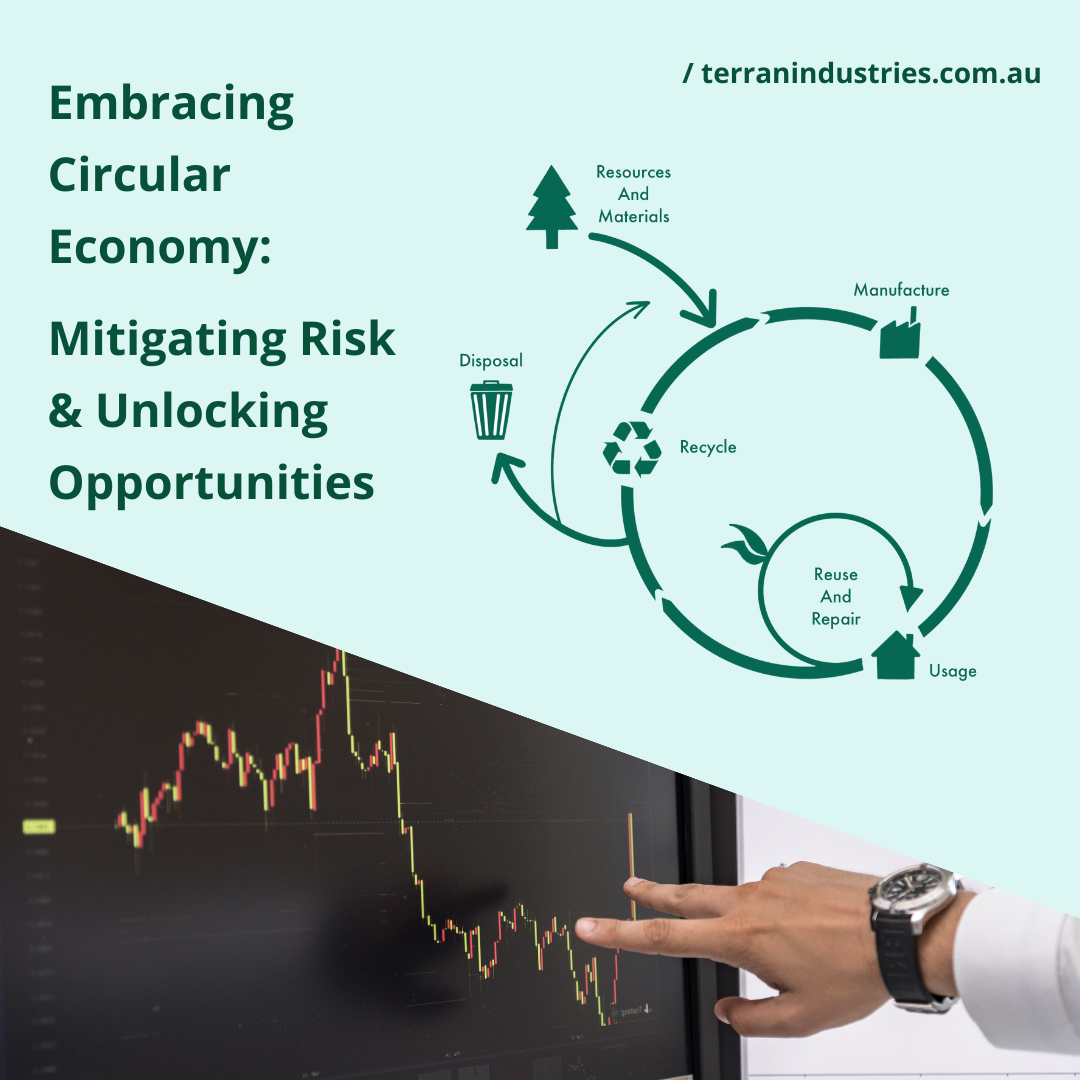BusinessCircular EconomyCircular Economy: Mitigating Risk & Unlocking Opportunities

In an era marked by growing environmental concerns and resource scarcity, businesses worldwide are seeking innovative ways to address sustainability challenges.
The circular economy model has emerged as a powerful solution, offering not only environmental benefits but also significant opportunities to reduce risk within organisations. By transitioning from a linear "take-make-dispose" approach to a circular system that emphasises resource efficiency and waste reduction, businesses can enhance their resilience, mitigate risks, and drive long-term success.
Understanding the Circular Economy
The circular economy aims to create a regenerative and restorative system where resources are kept in use for as long as possible, thus minimising waste and maximising their value. This holistic approach encompasses various principles, including designing for durability, reusing and refurbishing products, recycling materials, and regenerating natural systems. By adopting these principles, businesses can shift from a linear supply chain to a closed-loop system that promotes resource efficiency and minimises environmental impact.
Risk Reduction Through Circular Economy
Resource Availability and Price Volatility:
Traditional linear models heavily rely on finite resources, making businesses vulnerable to price fluctuations and supply chain disruptions. Embracing circularity reduces dependence on virgin materials and minimises exposure to resource scarcity risks. By incorporating strategies such as recycling, remanufacturing, and product life extension, organisations can maintain a more stable supply chain, safeguarding against sudden price spikes and shortages.
Regulatory Compliance and Reputation:
As governments worldwide enact stricter environmental regulations, businesses must adapt to remain compliant. Embracing circularity can help organisations proactively address regulatory requirements and mitigate legal risks. By incorporating eco-design principles, reducing waste generation, and implementing responsible disposal practices, companies can build a positive reputation, enhance stakeholder trust, and avoid potential legal and financial consequences associated with non-compliance.
Resilient Supply Chains:
Circular economy practices often involve diversifying sourcing strategies and establishing local or regional recycling and remanufacturing facilities. By doing so, organisations can reduce dependence on distant suppliers and enhance supply chain resilience. A more localised approach to sourcing and production reduces transportation-related risks, such as disruptions due to geopolitical conflicts, natural disasters, or fuel price volatility.
Cost Efficiency and Operational Resilience:
Implementing circular economy practices can lead to significant cost savings. By extending the lifespan of products through refurbishment or remanufacturing, businesses can reduce expenditures on raw materials and manufacturing processes. Furthermore, adopting a circular approach often encourages innovation, stimulates new revenue streams, and improves operational efficiency, thereby reducing overall financial risks.
Consumer Preferences and Market Opportunities:
Consumer attitudes are shifting, with a growing demand for sustainable products and services. By embracing circularity, businesses can align with evolving consumer preferences, gain a competitive edge, and tap into new market opportunities. Implementing practices such as product take-back programs, recycling initiatives, or shared ownership models can enhance customer loyalty, attract new customers, and reduce the risk of losing market share to more sustainable competitors.
Conclusion
Transitioning to a circular economy model presents numerous advantages for businesses, including risk reduction and increased resilience. By adopting circularity principles, organisations can mitigate resource scarcity risks, enhance regulatory compliance, fortify supply chains, improve cost efficiency, and capitalise on emerging market opportunities. Embracing circular economy practices is not only environmentally responsible but also a strategic imperative for long-term business success.
By prioritising sustainability and resilience, businesses can forge a path towards a more sustainable future while safeguarding their own viability in an ever-changing global landscape.

Evannah Jayne
Founder & CEO
A passion for sustainability and a desire to change the world, Evannah seeks to raise awareness of the important issues surrounding our planet today.
